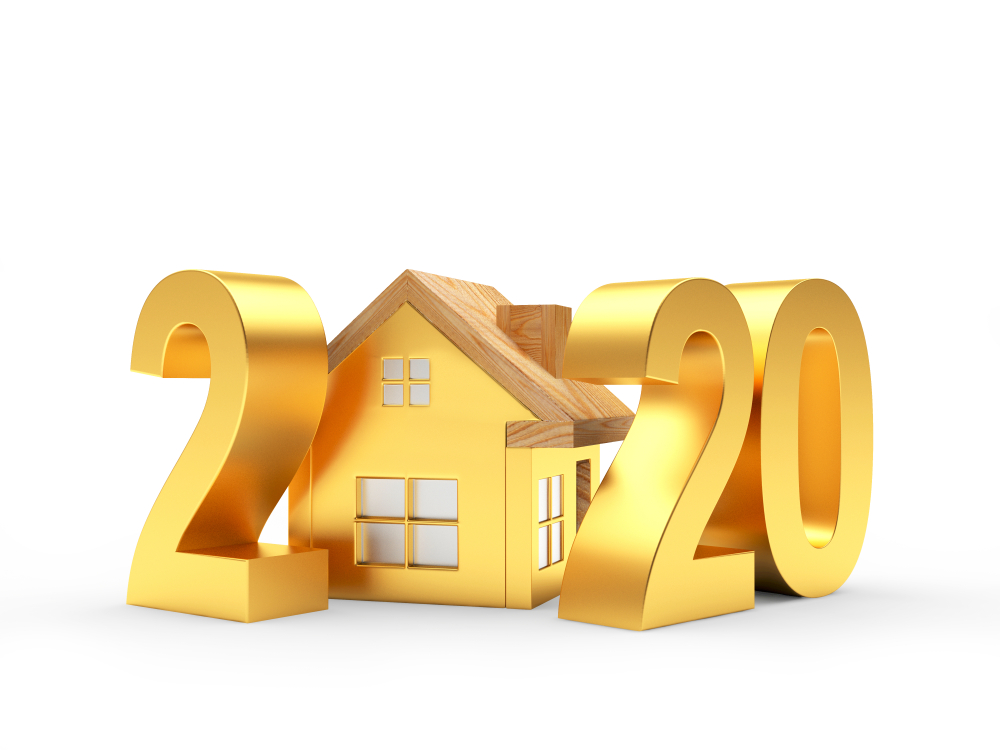Real estate speculators are projecting 2020 to be a mixed bag, but overall quite friendly to real estate professionals. Markets will continue to be wracked by uncertainty: nobody’s sure how strained trade relations between the US and China will play out, and what the ramifications for real estate will be. Sluggish economic growth overall and the upcoming general election also means more market uncertainty.
Uncertainty isn’t necessarily a bad thing for real estate
At a glance, this situation doesn’t bode well for real estate, and insecurity can be detrimental—speculators may hold off on purchases until they have a clearer idea of which political party will be determining new legislation—especially since progressive candidates are campaigning for substantial transformations to our tax system. However, during periods of uncertainty, many will seek out stable assets, and housing is the preferred asset of the investor class. The uncertainty that has arisen as a consequence of the political landscape could be a boon for capital markets.
The market will correct away from a buyer’s market
Real estate professionals who struggled with increased competition due to the buyer’s market are hoping that the low mortgage rate (which currently hovers around 3.75%, and most expect the Fed to keep it low) will reinvigorate the market and give some power back to sellers as many buyers will be eager to take advantage of these preferential mortgages. This market correction is likely to occur in 2020, especially because inventory is tightening up, particularly for starter homes and affordable housing options, which will further push up prices. Broadly speaking, inventory is expected to be scant for most of 2020, but it may be mitigated by increased construction.
Home prices will grow, but only slightly
While home prices are rising, experts anticipate that the rate of growth will taper off, and sellers should expect a slight upward creep at prices in 2020. Demand will vary depending on the type of building. Demand for homes is expected to remain quite high, while office space will be comparatively sluggish, although it will see more competition than last year.
Generational shifts will continue
Millennials took the lead in 2018 to become the most prominent home-buying demographics, and they will continue to make the bulk of home purchases in 2020. The dominance of millennial buyers requires a change in strategy on the part of realtors since millennials have markedly different preferences and habits compared to generations past. They prioritize location, ready-to-use amenities, and good local schools over factors like size. They also browse and purchase homes predominantly from their mobile devices, so if your site isn’t easily accessible from a smartphone, you’re missing out. Although they’re stereotyped as urbanites, this doesn’t align with the data. The reality is that millennials are moving to the suburbs in droves, and are showing no signs of stopping in 2020.
The baby boomer generation continues to constitute a major player in real estate. They’re hoarding inventory, keeping more properties away from the market than we’ve ever seen before. Realtors looking to succeed with that demographic will have to develop new and innovative strategies to get this steadfast generation to part with their homes.
Looking ahead
2020 marks the end of a transformative decade for real estate. The 2010's were defined by the extended recovery from the housing market collapse, but fortunately, confidence in housing has been restored, and the real estate industry has succeeded in winning back the trust of young consumers thought to be too jaded. While the past year was defined by a decisive shift towards a buyer’s market, which posed a challenge to realtors facing increased competition and reluctant sellers, many are anticipating a correction in 2020 that will hopefully lead to a smooth and lucrative year, in spite of political uncertainty.

